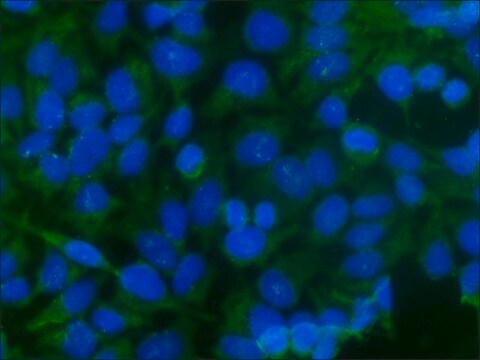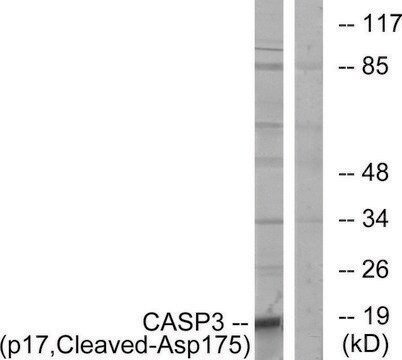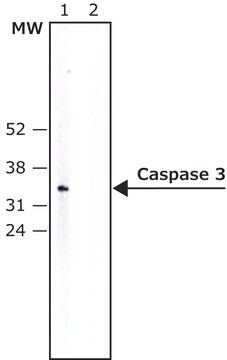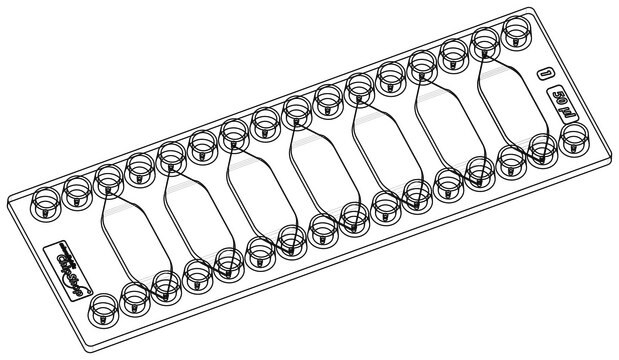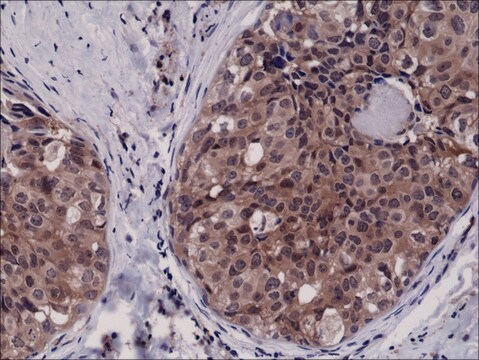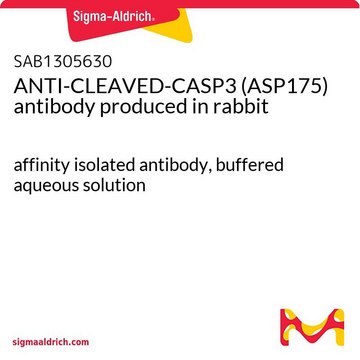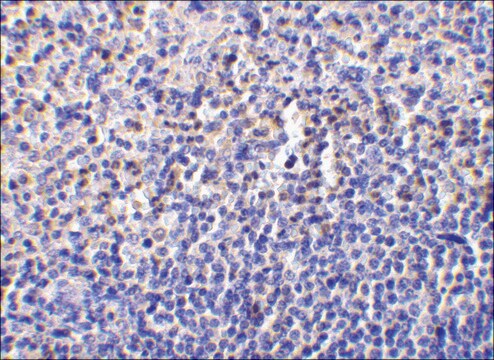AB3623
Anti-Caspase 3 Antibody, active (cleaved) form
Chemicon®, from rabbit
Synonym(s):
Apopain, Yama Protein, CASP3, SCA-1, procaspase3
About This Item
Recommended Products
biological source
rabbit
Quality Level
antibody form
affinity isolated antibody
antibody product type
primary antibodies
clone
polyclonal
purified by
affinity chromatography
species reactivity
mouse, rat, human
manufacturer/tradename
Chemicon®
technique(s)
immunofluorescence: suitable
immunohistochemistry (formalin-fixed, paraffin-embedded sections): suitable
western blot: suitable
NCBI accession no.
UniProt accession no.
shipped in
dry ice
target post-translational modification
unmodified
Gene Information
human ... CASP3(836)
General description
Specificity
Immunogen
Application
Apoptosis & Cancer
Metabolism
Caspases
Enzymes & Biochemistry
1:100-1:200 (0.5-4 µg/mL) dilution of active apoptotic cells we used to detect Caspase-3.
Note when using tissue, levels of active caspase 3 can below detectable levels. Use CC119 (human caspase 3) incubated 30 minutes with 1 mM ATP (for activation) as a positive control on westerns. Alternatively, neuronal culture preparations incubated with staurosporine (0.5 µM, 10-18 hr) typically give a strong caspase 3 signal.
Immunohistochemistry:
1:10 dilution (10-20 µg/mL), AB3623 has reacted successfully in 4% PFA fixed, paraffin embedded tissues mouse tissues.
Immunohistochemistry(paraffin):
Optimal Staining of Caspase-3 Monoclonal Antibody: Mouse Small Intestine
Target description
Linkage
Physical form
Storage and Stability
Analysis Note
Tonsil and appendix tissue. Jurkat cells induced for apoptosis with recombinant soluble TRAIL and staurosporine treated mouse 3T3 cell lysates Skin/Tumor, Embryo.
Other Notes
Legal Information
Disclaimer
Not finding the right product?
Try our Product Selector Tool.
recommended
Signal Word
Warning
Hazard Statements
Precautionary Statements
Hazard Classifications
Aquatic Chronic 2 - Skin Sens. 1
Storage Class Code
10 - Combustible liquids
WGK
WGK 3
Certificates of Analysis (COA)
Search for Certificates of Analysis (COA) by entering the products Lot/Batch Number. Lot and Batch Numbers can be found on a product’s label following the words ‘Lot’ or ‘Batch’.
Already Own This Product?
Find documentation for the products that you have recently purchased in the Document Library.
Customers Also Viewed
Our team of scientists has experience in all areas of research including Life Science, Material Science, Chemical Synthesis, Chromatography, Analytical and many others.
Contact Technical Service